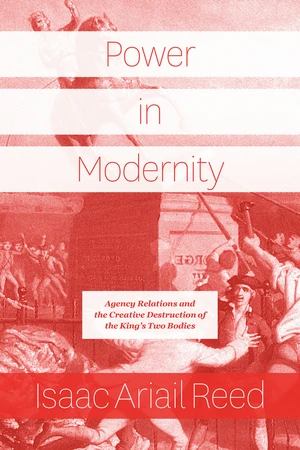In Power in Modernity, Isaac Ariail Reed proposes a bold new theory of power that describes overlapping networks of delegation and domination. Chains of power and their representation, linking together groups and individuals across time and space, create a vast network of intersecting alliances, subordinations, redistributions, and violent exclusions. Reed traces the common action of âsending someone else to do something for youâ as it expands outward into the hierarchies that control territories, persons, artifacts, minds, and money. He mobilizes this theory to investigate the onset of modernity in the Atlantic world, with a focus on rebellion, revolution, and state formation in colonial North America, the early American Republic, the English Civil War, and French Revolution. Modernity, Reed argues, dismantled the âKingâs Two Bodiesââthe monarchâs physical body and his ethereal, sacred second body that encompassed the body politicâas a schema of representation for forging power relations. Reedâs account then offers a new understanding of the democratic possibilities and violent exclusions forged in the name of âthe people,â as revolutionaries sought new ways to secure delegation, build hierarchy, and attack alterity. Reconsidering the role of myth in modern politics, Reed proposes to see the creative destruction and eternal recurrence of the Kingâs Two Bodies as constitutive of the modern attitude, and thus as a new starting point for critical theory. Modernity poses in a new way an eternal human question: what does it mean to be the author of oneâs own actions?
Price history
▲19.37%
Jan 15, 2023
€27.38
▲571.68%
Jan 14, 2023
€22.94
▼-84.72%
Dec 31, 2022
€3.42
▼-18.38%
Dec 30, 2022
€22.35
Dec 24, 2022
€27.38

